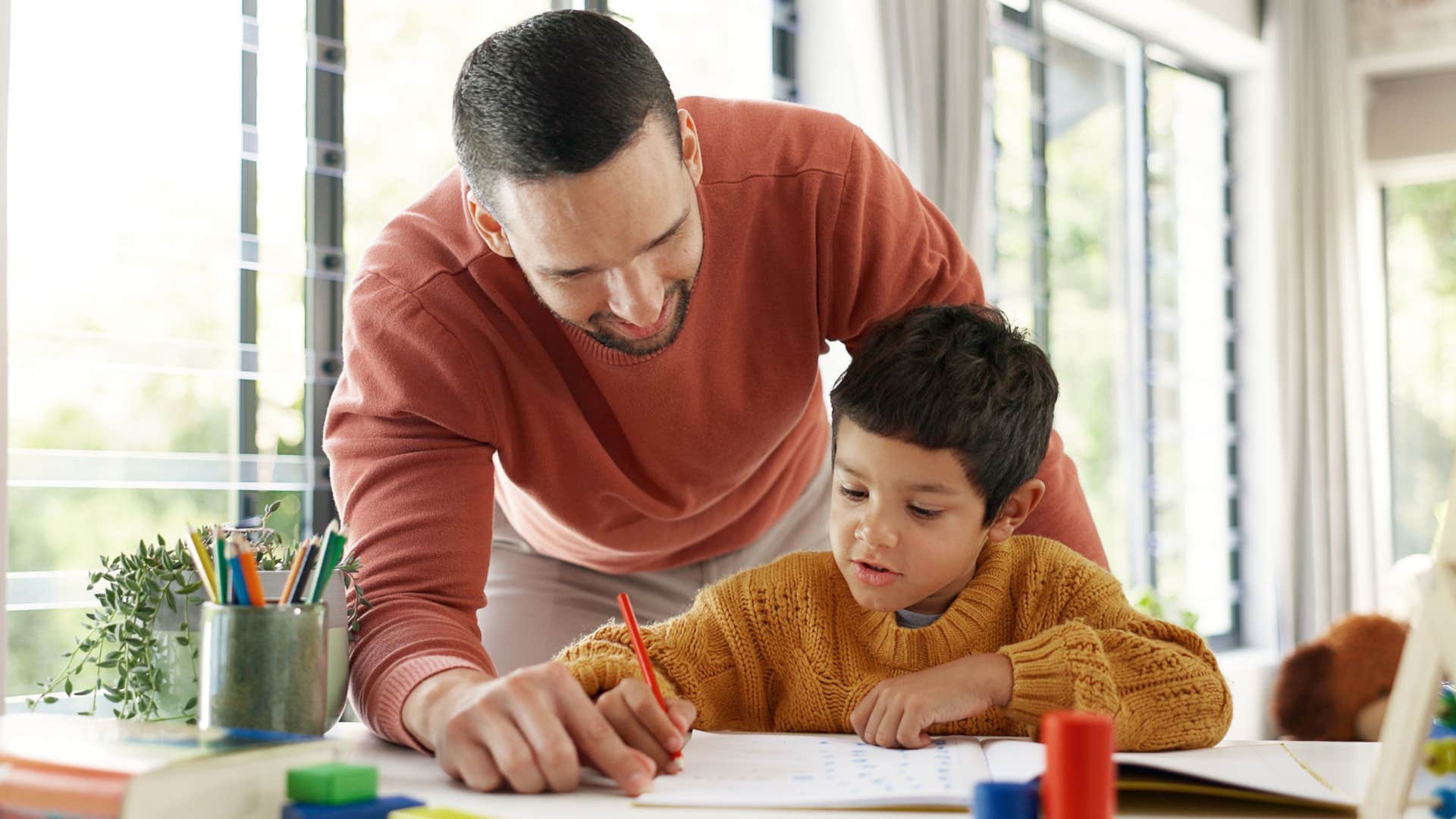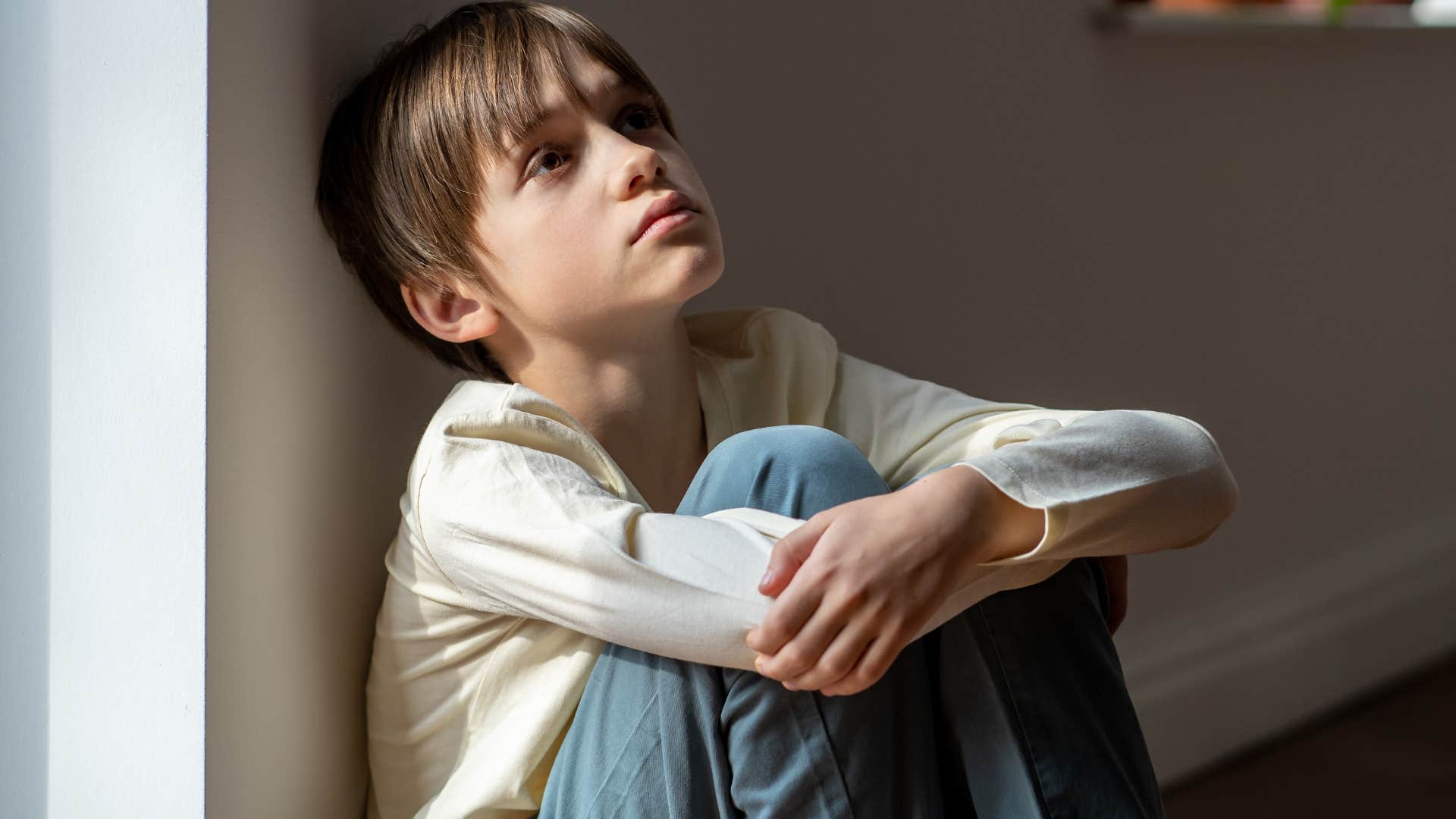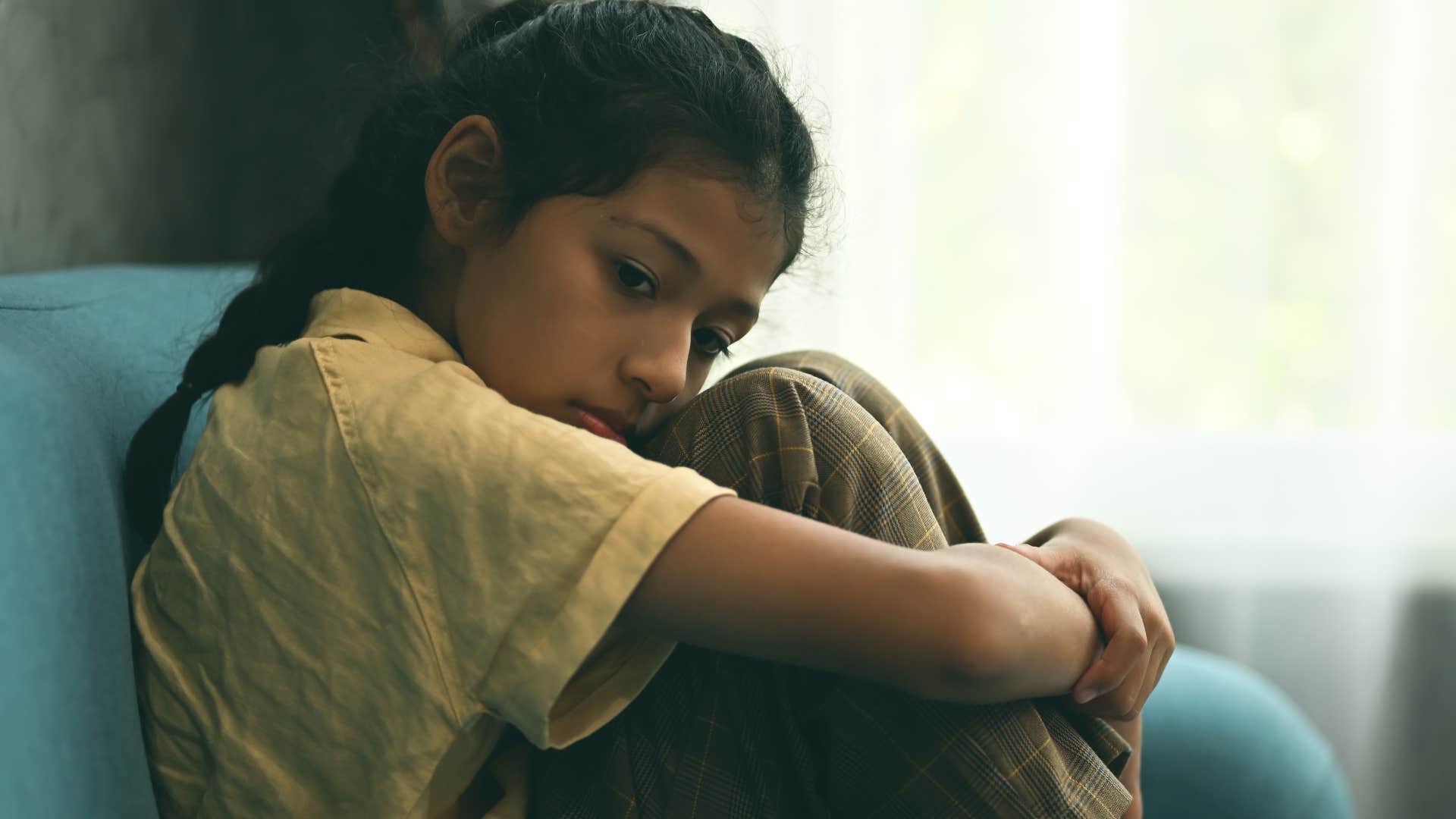11 Signs You Were The Good Child Growing Up And It Cost You More Than You Realized
Being the 'good' kid isn't always what it's made out to be.
 Oleg Fotografo | Shutterstock
Oleg Fotografo | Shutterstock Parenting isn’t an easy job — you’re forced to deal with your own needs, manage your kids’ needs, and figure out the flurry of other work, life, and family responsibilities that need your attention. We often judge parents who pick favorites, despite being an incredibly common experience, according to BYU research, or rely on older siblings for help, even though it feels innocent and well-intentioned at the time. We can recognize that parenting is a tough job, yet we still judge without reservation.
Of course, it’s important to recognize the subtle and unsuspecting parenting styles and choices still negatively affecting adult children today, like the signs you were “the good child” growing up, and it cost you more than you realized, but from an empathetic perspective. In most cases, parents aren’t making choices to actively hurt their kids; they’re just doing their best. Accountability from parents is essential, but recognizing some of these signs with grace and kindness as an adult child can help make that conversation more productive.
Here are 11 signs you were the good child growing up, and it cost you more than you realized:
1. You learned early that being 'low-maintenance' meant your needs were a burden
 PeopleImages.com - Yuri A | Shutterstock.com
PeopleImages.com - Yuri A | Shutterstock.com
If you were the “good child” growing up, chances are your parents commended your low-maintenance attitude. To them, your self-reliance and hyper-independence as a child took responsibilities off their plate — they knew they could rely on you to watch your siblings, do chores, or even subtly people-please to protect the positive energy at family gatherings.
However, this attitude — no matter how unsuspecting and innocent it seemed to you or your parents at the time — may have taught you a misguided truth about your own needs. You suppressed your emotions or viewed your needs as “a burden.” Being praised for being low-maintenance taught you to downplay your feelings, suppress your needs, and equate being "easy" with being lovable.
In adulthood, this experience likely cost you your communication skills, emotional regulation skills, and relationship health. You struggle to express your needs without viewing them as a burden, try to “protect” partners and friends from your emotions, and you may still “people-please” to prove to others that you’re easy to be around, even at the expense of your self-worth and well-being.
2. Asking for help still feels like failure
 DimaBerlin | Shutterstock.com
DimaBerlin | Shutterstock.com
People who grow up as the good child in their families tend to adopt self-reliant tendencies from an early age. Their parents praise them for being independent, so they continue to rely on themselves to prove to their parents that they can do it well.
However, later in life, many of these adult children who were good children growing up still feel guilty and shameful about asking for help. They feel like their independence is something to be praised, and it’s compromised when they admit to a mistake or ask for help. They internalized the idea that needing support made them weak — now, they struggle to let others in, even when overwhelmed.
They view their hyper-independence as a shield of armor and a facet of their identity rather than an experience that isolates them from better connections and self-reflection. People want to be asked for help, but the person seeking guidance also benefits from doing so — it may feel uncomfortable. Still, it’s the key to growing, making connections, and overcoming the misguided truths of unresolved childhood trauma and experiences.
3. You got used to being overlooked
 1st Footage | Shutterstock.com
1st Footage | Shutterstock.com
Especially if you had siblings, being the good child inherently meant you got less attention. Whether your parents were busy dealing with a “problem child” or taking care of other responsibilities, you were taught early on to fend for yourself and solve your own problems.
You didn’t cause problems, so you didn’t get attention, and now you’re either hyper-independent or constantly chasing validation. In adulthood, the experience of having unmet needs from parents or even affection and attention lingers. Even if you wouldn’t characterize this experience as a child to be “neglect,” studies show that not receiving enough affection or attention from your parents growing up can lead to mental health issues later in life.
You may constantly look to others for the praise and affection your parents never gave you, leading to unbalanced and potentially toxic relationships. You may also be incredibly hyper-independent, believing that your needs and emotions aren’t worthy of support from others.
4. You made everyone comfortable, except yourself
 Fizkes | Shutterstock.com
Fizkes | Shutterstock.com
Many people-pleasing behaviors that adults struggle with in adulthood are rooted in childhood experiences, sometimes revolving around being the good child at home. If you felt a responsibility to calm down your siblings, moderate parental arguments, or conceal your own struggles to keep the peace at home, chances are you do the same now as an adult.
According to family therapist Jennifer Litner, this consistent self-sacrifice tends to lead to low self-esteem and poor relationships, as one always puts other people’s needs before one's own. Your role as the peacemaker trained you to sacrifice your comfort for others', leaving you unsure how to advocate for yourself.
5. You grew up fast, taking on adult responsibilities sooner than most
 Miljan Zivkovic | Shutterstock.com
Miljan Zivkovic | Shutterstock.com
Whether you were a middle schooler relaying information between parents or a high school kid taking care of your siblings after school, the good children growing up tended to adopt a parentified role way too early in life. They were likely mature and self-sufficient, which allowed their parents to feel more comfortable bestowing them with more responsibilities, but at the expense of their carefree childhoods.
Children should feel empowered to make mistakes, seek guidance from their parents, and live innocently before entering adulthood. With misguided parenting styles and unfortunate home life circumstances, they don’t always get that chance.
From learned helplessness to constant anxiety and burnout, adult children who grew up too fast are still mitigating the consequences, unable to reconnect with their childhood identity, passions, and experiences without lingering resentment or shame.
6. You were your parents' therapist, yet you never had one for yourself
 Alexander_Safonov | Shutterstock.com
Alexander_Safonov | Shutterstock.com
When you’re labeled the overly mature sibling or the good child growing up, adults feel more comfortable indulging in conversations that kids of any age shouldn’t be burdened with. From financial struggles to conflicts between parents and even planning for the future, the good child is often forced to be the emotional dumping ground for their parents, sparking resentment, anxiety, and depression very early in life.
Being the emotional dumping ground for adults around you blurred the line between maturity and emotional neglect. Not only did you feel guilty for expressing your emotions and concerns to your parents, but you may have felt overwhelmed by soothing theirs.
7. Your wins never felt like enough
 Tatyana Soares | Shutterstock.com
Tatyana Soares | Shutterstock.com
Considering you were parentified from an early age as the good child, it’s likely that your small successes and achievements were dismissed or overlooked by your parents. They viewed you as another parent or mature adult at home, so things like an A on a spelling test or navigating a friend break-up weren’t commendable. Your accomplishments were expected, not celebrated, which taught you that success is a requirement, not a reason to feel proud.
If you had siblings, chances are you grew resentful of watching their success celebrated while you were left to seek out attention or praise. In adulthood, this experience can be costly, encouraging adult children to believe their successes are “obligations” to achieve rather than moments worthy of celebration and excitement.
8. You thought your needs and boundaries were selfish
 kryzhov | Shutterstock.com
kryzhov | Shutterstock.com
If you were a good child growing up, chances are you were, either directly or indirectly, pressured to keep your needs and boundaries to yourself. Being the “good kid” meant staying silent and compliant — now you find it hard to speak up or protect your peace. You were praised for being helpful and mature, so seeking attention and praise from your parents revolved around keeping your struggles to yourself, no matter how much emotional turmoil and anxiety that caused.
A BMC Psychology study goes a step further in explaining this anxiety in children, arguing that experiences like not having a safe space to advocate for their needs can spark both anxiety and self-esteem issues that follow kids into adulthood. They report a lower quality of life and less success in healthy relationship building, daily rituals and routines, and emotional well-being.
9. You craved solitude
 Kateryna Onyshchuk | Shutterstock.com
Kateryna Onyshchuk | Shutterstock.com
Good children are often left alone when they aren’t actively helping their parents or keeping the peace at home, which isn’t always bad. However, for kids who don’t have a safe space to express their needs or have vulnerable conversations with their parents, this alone time could be a space where repressed emotions and frustrations come out violently.
Alone time wasn’t just a preference — it became your only safe space to process everything you couldn’t say aloud. A similar pattern tends to occur in adulthood, where adult children crave solitude and quietness, even when it’s not healthy.
10. You never learned how to say 'no'
 Prostock-studio | Shutterstock.com
Prostock-studio | Shutterstock.com
You were always expected to be available as the good child growing up, especially around parents who relied on you for support at home with siblings or chores. You weren’t given the freedom to practice setting boundaries or advocating for yourself; instead, you were pressured to overwork yourself and overlook your needs. Now, guilt creeps in anytime you try to set a boundary or prioritize yourself.
According to a study published in the Journal of Family Issues, childhood distress is often closely associated with parental affection. When kids aren’t having their needs met or being offered affection and guidance by their parents, it’s their psychological well-being that’s negatively affected.
They aren’t given the chance to learn how to care for themselves, advocate for their needs, or have vulnerable conversations — all behaviors and traits that lead to lifelong health, meaningful relationships, and positive self-worth.
11. You confused obedience with worthiness
 Prostock-studio | Shutterstock.com
Prostock-studio | Shutterstock.com
Like many of the other signs that you were the good child growing up, being praised for obedience largely affects adult confidence and well-being. From people-pleasing to overlooking your needs to having vague boundaries, it costs you more than you realize.
You were taught that quietness and obedience, even at the expense of your own well-being, were better than being outspoken and confident. You were rewarded for being agreeable, but as an adult, that conditioning makes it hard to recognize when you’re being mistreated. Now, you’re more likely to tolerate misbehavior and emotional manipulation as a result — you feel guilty for saying “no,” expressing your needs, or setting firm boundaries.
Zayda Slabbekoorn is a staff writer with a bachelor’s degree in social relations & policy and gender studies who focuses on psychology, relationships, self-help, and human interest stories.

